#biocapacity
Photo

Earth Overshoot Day is today !
Earth Overshoot Day Falls on July 28, Two Days Earlier Than in 2021
Some one million species are threatened with extinction and 75 percent of environments on land are "severely altered" by humanity, according to a report from the United Nations.
Another report from IPCC suggests that evidence of human influence on extreme weather has strengthened, especially when it comes to events like extreme rain, droughts, and cyclones.
In less than eight months, humanity has exhausted Earth's budget for the year.
Photo by Tobias SCHWARZ / AFP
#earth overshoot day#earth#humanity#human rights#sustainability#ecology#Consumerism#saddayfordemocracy#nature#deforestation#animalrights#humanrights#children's rights#biocapacity#human footprint#movethedate
90 notes
·
View notes
Text
Embracing the Challenge: Charting a Sustainable Course for an Eleven-Billion World

View On WordPress
#FriendsAreas#11 billion#@FriendsAreas#biocapacity#conservation#ecoclogy#ecology#footprint#Friends of the Saskatoon Afforestation Areas Inc.#people#population#Saskatchewan#Saskatoon#sustainability#transformation#world#World Population Day
0 notes
Text
argentina
Here is my story of Argentina. My credentials are that I have I spent the first three hours of my flight to Argentina reading its Wikipedia page plus followup google search results.
Argentina was rich. Then it became poor for no clear reason. It could become very rich again.
Let’s start with the last one.
Argentina is a major agricultural exporter that’s not even tapping its full biocapacity. Without making any prescriptive statements about whether they should, it’s descriptively true that they could be leaning on their natural resources much harder than they currently are.
The wind potential of the Patagonia region (southern third of Argentina) could in theory provide enough electricity to sustain a country five times more populous. But the infrastructure isn’t there to pipe it where it needs to go. Argentina is very urbanized, with 92% of its population in cities. (This is actually weird – if you look at countries ordered by urbanization, you get a bunch of tiny or fake countries like Bermuda or Macau, and then central category member countries like Uruguay, Israel, Argentina, and Japan.)
Argentina had a pretty good nuclear program. Decent record as a locus of scientific progress despite all the political problems and crumbling infrastructure. It’s got a high literacy rate.
It kind of reminds me of... (person who's only been to 7 cities voice) Berkeley?
Okay. Now let’s skip back to 1861. Argentina has won independence from the Spanish Empire. It’s about to get very Italian in here.
At time of independence, Argentina had the familiar-looking South American mix of white+native+black. But soon after independence the state started (0) genociding/expanding into the south (1) enacting liberal economic policies, and (2) encouraging European immigration. Italians liked this idea for some reason, so today, 60% of Argentinians are full or part Italian.
This wave of immigration changed Argentinian society enormously. In this period, Argentina became very wealthy and productive. In 1910 it was the seventh richest country in the world.
Twenty years later, dissatisfaction over the Great Depression fueled a coup and kicked off 50-70 years of political instability.
I like this graph. Look at the Y axis values – this is a log graph.

I have no clean explanation for what happened, but I can at least describe what happened after 1930.
In between coups, Argentina stays neutral in both world wars up until the US pressured it into declaring war on the Axis Powers in 1945. But then the Europe part of WWII ended a month later, so they probably didn't have to do too much. In 1946, Peron takes power.
(Sidenote: why did so many Nazis famously flee to Argentina? Argentina had lots of German immigrants & close ties to Germany. Peron, who'd found Hitler's ideology appealing since he was a military attaché in Italy during WWII, straight out ordered diplomats and intelligence officers to establish escape routes for Nazis, especially those with military/technical expertise.)
I still don’t know much about Peron. There's the socialist stuff: nationalized a lot of industries and improved working conditions. There's the dictator stuff: beating up and firing people to bring them into line, including university teachers (of course) and union leaders that Peron didn't like. He was really liked for a while, and then very disliked, and got exiled to Spain after a decade of rule.
Then there's a phase where no one manages to rule successfully, in part because getting approved by both Peronists and anti-Peronists is hard. This 1955-2003 phase reminds me a lot of Korean history around the same time – lots of military coups and assassinations and journalists getting tortured. Whenever I hit this phase in a country's Wikipedia page it just reads like TV static, interchangeable variable names swinging in and out of scope... even though there's got to be more than that.
When I first started reading about US Republicans and Democrats I got really confused because either they had 0 major differences or 70. Now that I've been in the States for a decade I have a sense for what major visions and underlying values differences they have, but it'd be hard to explain succinctly or in a way that other people will agree with. So something like that has to have been going on with various flavors of anti, sub, and classic Peronism that’s inscrutable to an outsider who’s spending 3 hours on learning about this.
At some point, comically, Peron comes back, wins an election with his wife as vie president, and dies of a heart attack. His wife takes power and does things like empowering the secret police to destroy her enemies, but girlbosses too close to the sun and is ousted after a year.
All this turmoil flattens out somewhat in 2003. I have no idea what went right. They tried Peronism! They tried anti-Peronism! They tried leftist terrorism and rightist terrorism! They tried OG Peron again! They tried Peron's third wife! They tried nationalization and privatization! They tried protectionism and not-protectionism!
Nestor Kirchner, whose rule coincided with the improvement, had "neo-Keynesian" policies, but who knows if that was it. He didn't run for reelection but said "try my wife, she'll do fine", and so she won the next cycle. Cristina Fernandez de Kirchner did well enough that she was reelected. People didn’t like her successor and brought her back as a vice president, but there were what sound like normal-for-South-America levels of corruption scandals during much of her time in office, and last month she was sentenced to six years in prison and a lifetime ban from holding public office.
I have a number of hypotheses as to why Argentina crashed so hard when it had and has so many prerequisites for success, and they all sound stupid when I write them out, so I won’t. But I will gesture at my confusion and amazement.
83 notes
·
View notes
Text
Earth Overshoot Day 2022
2022's Earth Overshoot Day is today, the 28th of July.
This date marks the day when humanity has used all of the biological resources that Earth regenerates during the entire year for 2022.
Earth Overshoot Day is an annual campaign by the Global Footprint Network. You can find their methodology on their website.
If you'd like inspiration on how to take climate action, check out their solutions page or take a look at my collection of resources on fashion and climate change.
#wasteless crafts#climate change#global warming#tw climate anxiety#tw eco anxiety#earth overshoot day#earth overshoot day 2022#global footprint network#movethedate#ecology#economy#circular economy#sustainability#climate action#climate activism
119 notes
·
View notes
Text
Despite the economic slowdown due to Russia's invasion of Ukraine, Germany has now overreached its sustainable biological limits.
Meanwhile, this year's global Earth Overshoot Day is, like last year, projected to be around July 28.
The 2022 date was the earliest ever recorded by US-based environment NGO, Global Footprint Network, which has been calculating global and national ecological impacts for near three decades.
Back in 1970, the Earth's biocapacity — defined as an "ecosystems' capacity to produce biological materials used by people and to absorb waste material generated by humans" — was more than enough to meet annual human demand for resources. But in the half century since, we have steadily outgrown our single planet.
Humanity now needs around 1.7 planets to maintain its lifestyle, while Germany needs three.
The Global South will bear much of the cost — as will future generations suffering through a climate crisis now being fueled by overconsumption.
Countries like Indonesia or Ecuador, for example, do not overshoot until December and are close to living within their means. But they are the target of resource exploitation by richer nations like Germany.
"Germany is the fifth-biggest consumer of raw materials in the world, and is importing up to 99% of minerals and metals from countries in the Global South," said Lara Louisa Siever, senior policy advisor for resource justice at the German development network, INKOTA, in 2022.
In 2023, Qatar was the worst overshoot culprit, using up its renewable resources by February 10.
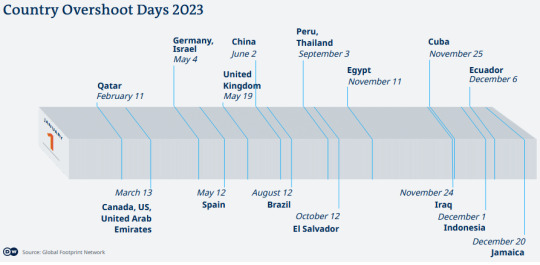
9 notes
·
View notes
Text
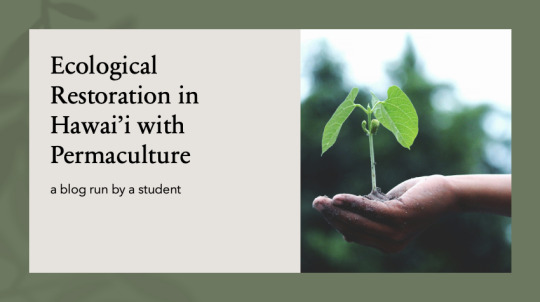
An analysis revealed that as small as the land area is at 17,400 square kilometers, the Hawaiian Archipelago comprises the widest range of ecosystems.


Endemic species of organisms are found exclusively in a particular geographical area, and the Hawaiian Islands have hosted an estimated 15,000 species found nowhere else in the world. Calculations indicate that 27 out of the 38 defined terrestrial ecosystems present on earth exist in the Hawaiian Islands, deeming the Hawaiian Archipelago one of the most ecosystem-rich regions known across the globe.
The wide range of ecosystems and a high number of biological diversity and initially found endemic species underscores the importance of conservation efforts to preserve the biodiversity of the islands. Present-day statistics according to Gon and researchers estimate that “over 80% of native habitat has been lost”, leading to biodiversity loss.

In the study, “ʻĀina Momona, Honua Au Loli—Productive Lands, Changing World: Using the Hawaiian Footprint to Inform Biocultural Restoration and Future Sustainability in Hawai‘i,” Gon and other researchers address the need for more robust biosecurity measures and adaptation strategies to help mitigate the impacts of climate change on agriculture and ecosystem health in Hawai’i. With the diverse range of ecosystems growing within the islands, the opportunities for agricultural diversification and biocapacity enhancement are available to utilize in a design. Gon and the other authors strongly advocate for diversified agricultural practices that target and address ecological challenges and promote resilience.
_
(click the image for the image description with credit to the artist)
_
article sourced within the post:
Gon, Samuel, et al. “ʻĀina Momona, Honua Au Loli—Productive Lands, Changing World: Using the Hawaiian Footprint to Inform Biocultural Restoration and Future Sustainability in Hawai‘i.” Sustainability (Basel, Switzerland), 10(10), 2018, 3420-. https://doi.org/10.3390/su10103420
0 notes
Text
The Advantages of Environmental Reduction
We are a Sustainability Report Consultant In UAE, Sustainability preserves the environment's health and biocapacity. Individual and community well-being are bolstered by sustainability. A more sustainable economy would have less waste and pollution, lower emissions, more jobs, and a more equitable income distribution. It is crucial to consider the sources of people's and society's well-being. Many people believe that social and individual well-being is correlated with the state of the economy. This is untrue. Even though the economy is necessary for society to function, it is still a subset of society. The economy relies on human energy to propel it forward and natural resources to support it. Because life depends on the environment's health, society is also an element of it.
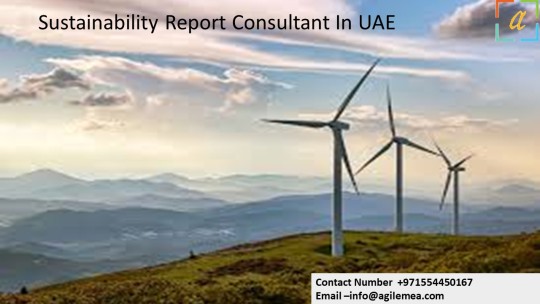
As a Sustainability Reporting Consultant In UAE, the commercialization of every facet of life is the central focus of modern economics. This is detrimental because relationships, experiences, creativity, and personal growth are among the most significant things in life and have no monetary worth. We are taught that anything has no actual value if it has no trade (economic) value. The contrary is more accurate. You cannot purchase pleasure, love, or fulfilment with money. Modern economies are placing unsustainable strain on the planet and its inhabitants. Human well-being depends on the environment's health because it is where our physical resources originate. The quantity of renewable resources created by the earth that humans can use is known as biocapacity.
Being a Sustainability Report Consultant, the only way to use more resources than available is to use natural capital, which degrades and diminishes the ecosystem. As a result, the environment's capacity to supply the resources we will require in the future is steadily diminished by human activity. Reducing the ecological footprint to live within the earth's biocapacity is the fundamental meaning of sustainability. This has the enormous advantage of allowing the environment to flourish and perpetually support all species, including human life. Living within the bounds of the planet does not equate to poverty; on the contrary, it has many advantages for both individuals and society as a whole.
In our opinion as Sustainability Report Consultant In UAE, People benefit from sustainability in a variety of ways. This is best exemplified by the voluntary simplicity movement, which emphasizes possessing less while living life to the fullest. There are numerous advantages to living. People can now place more emphasis on the things that genuinely contribute to well-being—relationships, personal development, meaningful activities, and life experiences, including social and cultural ones—instead of the produce-and-consume lifestyle. Sustainability typically encourages healthier lifestyle choices; for instance, it favors cycling or walking over driving. Fresh cuisine from the area is favored over-processed meals. Sustainable housing enables dry, warm interiors that prevent sickness. It promotes using safe, natural goods instead of artificial ones.
We believe as a Sustainability Reporting Consultant In UAE, less stuff is encouraged by sustainability, such as renting, sharing, buying used goods, recycling, and reusing. Increased DIY projects and self-sufficiency will probably be part of the sustainable practices, as they both boost the earth's biocapacity. One of the side effects of all this is that you can save money, which may allow you to work less. Sustainability is beneficial to society as a whole. People who are well will contribute to a healthier society, and vice versa. Pro-social behaviors like lending, sharing, and helping one another to benefit all parties involved and raise social well-being standards in our communities are also examples of sustainable practices.
#Sustainabilityreportconsultant#Sustainabilityreportconsultantinuae#Sustainabilityreportingconsultantinuae
0 notes
Text
People today are living beyond their means

From August 2nd on, people will consume more natural resources than the earth can actually provide in a whole year.
People overexploit nature - and therefore live on credit from today. Some things could be changed quite easily, say environmental and climate protectionists.
Today, Wednesday 2/8, people have used up the ecological resources that are actually available for the entire year on earth. According to the calculations of the American environmental organisation Global Footprint Network[1], August 2nd is Earth Overshoot Day this year. If everyone lived as lavishly as people in Germany, the day would have been May 4th.[2]
At first glance, it looks like progress because last year's Earth Overshoot Day was July 28th. It looks like people will have used fewer resources in 2023 than they did in 2022. However, according to Amanda Diep, spokeswoman for the Global Footprint Network, appearances can be deceiving. Rather, all data would be updated every year with the latest data collections and methods in order to be able to draw comparisons. According to this, the Earth Overshoot Day in 2022 was not July 28th, but rather August 1st.
Only one day has been won
"The trend is flat," said Diep, and has been for around ten years. In 2023 only one day was won. “How much of this is due to a drop in economic activity (because of Corona) or to decarbonisation efforts is hard to say.” Decarbonization means switching from fossil fuels to carbon-free and renewable energy sources.
On the one hand, the organisation calculates what nature can produce and absorb without losses in a year. This includes raw materials, drinking water and food, man-made waste and CO2 emissions. It compares this to what people consume with their way of life and economic activity. It sets the day when all of the year's resources are used up. Much of this is due to greenhouse gas emissions.
In order to live in balance with nature and reduce greenhouse gases as recommended by the Intergovernmental Panel on Climate Change (IPCC)[3], the Earth Overshoot Day would have to be pushed back by 19 days every year for the next seven years, Diep said. According to Diep, if it were possible to halve food waste worldwide, 13 days would be gained.
Plea for traveling by train
"For more than 50 years, the earth's natural resources have been overexploited every year," said Christoph Bals, political director of the environmental and development organisation Germanwatch[4]. Depending on the route, traveling by train can be up to 28 times more climate-friendly than flying, said Jacob Rohm, spokesman for climate-friendly mobility at Germanwatch.
“Abolishing the unfair tax exemptions for air traffic would already flush four billion euros into the federal budget every year. This could massively expand the rail network and offers in Europe.”
A study by Ohio State University[5] shows that only 6 percent of 178 countries are environmentally sustainable by providing their citizens with adequate food, energy and water without exceeding natural capacities. The researchers looked at water consumption and CO2 absorption, for example in forests.
The study found that many countries emit far more carbon than their ecosystems can handle. Nevertheless, the researchers see potential for combating environmental risks through renewable energies, plant-based nutrition and a sustainable circular economy.
Source
Christiane Oelrich, Menschen leben ab heute über ihre Verhältnisse, in Süddeutsche Zeitung, 2-8-2023; https://www.sueddeutsche.de/politik/erdueberlastungstag-menschen-leben-ab-heute-ueber-ihre-verhaeltnisse-dpa.urn-newsml-dpa-com-20090101-230801-99-635628
[1] August 2nd marks this year’s Earth Overshoot Day, according to the latest National Footprint and Biocapacity Accounts. They now track countries’ performance up to 2022, reducing reporting lag by three years. However, Earth Overshoot Day’s apparent delay by five days compared to last year’s isn’t all good news, as genuine advancements amount to less than one day. The remaining four days are owed to integrating improved datasets into the accounts’ new edition. Independently maintained and enhanced by FoDaFo and York University, the National Footprint and Biocapacity Accounts provide robust, transparent results. For every edition, results, including the annual dates of Earth Overshoot Day, are recalculated back to 1961, ensuring consistency across time and countries. https://www.overshootday.org/newsroom/press-release-june-2023-english/
[2] Read also: https://www.tumblr.com/earaercircular/724709611801853952/earth-overshoot-day-why-investors-should-be?source=share
[3] The Intergovernmental Panel on Climate Change (IPCC) is an intergovernmental body of the United Nations. Its job is to advance scientific knowledge about climate change caused by human activities.[1] The World Meteorological Organization (WMO) and the United Nations Environment Programme (UNEP) established the IPCC in 1988. The United Nations endorsed the creation of the IPCC later that year.[2] It has a secretariat in Geneva, Switzerland, hosted by the WMO. It has 195 member states who govern the IPCC.[3] The member states elect a bureau of scientists to serve through an assessment cycle. A cycle is usually six to seven years. The bureau selects experts to prepare IPCC reports.[4] It draws the experts from nominations by governments and observer organizations. The IPCC has three working groups and a task force, which carry out its scientific work.
[4] Germanwatch e.V. (founded in 1991), is a non-profit, non-governmental organization based in Bonn, Germany. It seeks to influence public policy on trade, the environment, and relations between countries in the industrialized north and underdeveloped south. The organization collates a variety of economic and social data to formulate position papers, often in partnership with other NGOs. Particular areas of interest include trade in food and agricultural policy, climate change, and corporate accountability.
[5] Tatyana Woodall, The Ohio State University, Study finds only 6% of nations provide for citizens in a just, sustainable manner, in: PhysOrg, 28-04-2023. https://phys.org/news/2023-04-nations-citizens-sustainable-manner.html The study found that while 67% of nations operate safely and sustainably in regard to water use, only 9% do so in regard to carbon sequestration, or reducing their greenhouse gas emissions. The study showed the United States was among the majority of countries that was able to safely and justly provide water to its citizens. While it provides for its citizens in regard to carbon use, it is not doing so in an ecologically sustainable manner. The study was published recently in the journal One Earth.
0 notes
Text
Earth Overshoot Day highlights Swiss over-consumption
The planet’s population has used up a year’s supply of sustainable natural resources, with Switzerland reaching this dubious milestone several weeks ago. Earth Overshoot Day was announced on August 2 by the ecological movement Global Footprint Network. This means that from now on until the end of the year the planet is being drained of resources at a faster rate than it can regenerate. + Switzerland’s ‘disappointing’ contribution to an emissions-free planet When measuring the consumption of resources in each country, Switzerland is more voracious than average. Swiss Overshoot Day was reached on May 13, sparking protests by environmental activists. Earth Overshoot Day is a “consequence of humanity demanding 70% more than Earth’s ecosystems are able to regenerate,” said Global Footprint Network on Wednesday. “Food makes up a large part of our Ecological Footprint – feeding humanity currently takes just about 50% of Earth’s biocapacity.” Switzerland wants to achieve climate... https://www.swissinfo.ch/eng/sci-tech/earth-overshoot-day-highlights-swiss-over-consumption/48706348?utm_campaign=swi-rss&utm_source=multiple&utm_medium=rss&utm_content=o (Source of the original content)
0 notes
Text
0 notes
Text
We need a biophysical Maastricht treaty. The real budgetary discipline of the 21st century consists in keeping a sustainable ecological deficit to biocapacity ratio. That's what sustainability means.
T. Parrique
0 notes
Text

August 2 is Earth overshoot day 2023 !
Earth Overshoot Day (EOD) marks when humanity’s demand for ecological resources and services in a given year exceeds what Earth can regenerate during that year.
Today is Earth Overshoot Day 2023, the Earth Overshoot Day calculated every year by Global Footprint Network using data from National Footprint and Biocapacity Accountswhich indicates the official depletion of renewable resources that the planet is able to offer within a year.
This means that today, August 2, humanity has already “finished” all the resources that Nature produces in an entire year and is starting to go into debt. Humanity, with its over 8 billion inhabitants, consumes in excessive quantities, beyond the natural regeneration (and reabsorption) capacities of the planet.
In 1973 Overshoot Day fell on December 3: we were just a few days over our annual budget. In 2003, September 12, in 2013, August 3. The date has always been getting ahead and our ecological debt has grown.
Globally we are consuming the equivalent of 1.7 Planets a year, an ominous figure that is expected to rise to two planets by 2030, based on current trends. In the last 5 years the trend seems to have stabilized, but it is difficult to establish whether this is due to the slowdown of the economy or to decarbonisation efforts. However, the reduction of our “debt” to the planet is still too slow. To achieve the United Nations IPCC goal of reducing global greenhouse gas emissions by 43% by 2030 (compared to 2010) it would be necessary to move Earth Overshoot Day forward by 19 days per year for next seven years.
According to the WWF there are many solutions that can be adopted at the community level or individually to have a significant impact on the type of future we invest in: for example if we used energy from 75% renewable sources we could move the Overshhot day by 26 days ; halving food waste would save 13 days.
“If up until the 1960s humanity was more or less in balance, the date has moved from year to year up the calendar, to arrive today at the beginning of August. This means that humanity has been in ecological overshoot for over 50 years and the debt we have accumulated amounts to 19 years of planetary production, i.e. what Earth’s ecosystems can regenerate in 19 years. The burden of this debt, which is set to increase, is starting to reduce economic options. The loss of biodiversity, the growing unpredictability of the weather and the depletion of groundwater are just a few symptoms. But overcoming itself is not inevitable. Constantly living beyond the physical possibilities of our planet is a limited possibility in time, we risk an ecological disaster: the goods and services that are the basis of our societies and economies are all produced by functioning and healthy ecosystems. We now have many targeted solutions to reverse the overexploitation of resources and support the regeneration of the biosphere in which we live”.
#human rights#humanity#global footprint#footprint#earth#overshootday#ressources#climate change#climate emergency#ecology#sustainability#sustainable
109 notes
·
View notes
Link
On July 28th, 2022, we reached the point when the earth can no longer sustain the rate at which we are using its resources!
For humans to be sustainable it would require 1.75 earths. The figures are even more shocking when you see which countries contribute to the use of natural resources.
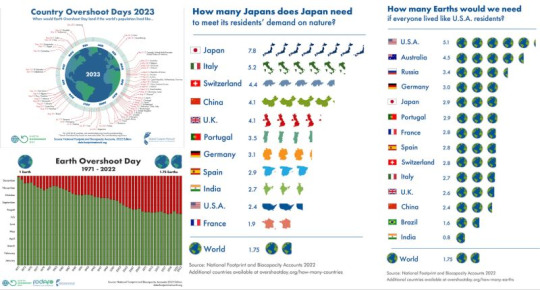
0 notes
Text
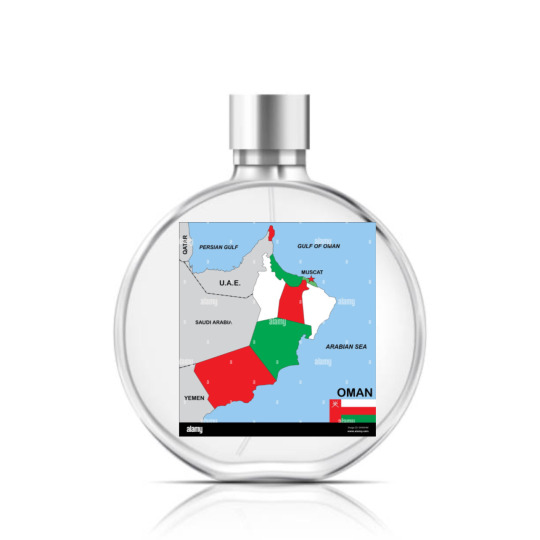
10. Oman
ecological footprint: 7.29
biocapacity: 1.46
2022 population:4,576,298
0 notes
Text
Growth levels in western Sydney are unsustainable
The editorial (“West Calls for a Bigger Slice of Tourism Pie,” Oct. 9) is justified in drawing attention to western Sydney. The need for planning has never been greater than at this time of record flooding and population growth. While floods took center stage, the phenomenal population growth of 27 percent in the five years between 2016 and 2021 is negligible, despite several well-known warnings. These include the fact that population simply cannot grow forever or the effect of growth on housing prices, traffic congestion, and many other shortcomings of population-driven infrastructure that are costly to repair. The human environmental footprint has been measured at more than 170 percent of renewable biocapacity. It is unsustainable on every spatial scale from global to local. Responsible planning for future generations and our life-supporting ecosystems must constrain this footprint. The stabilization of our population size in growth areas such as Western Sydney must be part of this.
Alan Jones, Narwena
For a taste of greater Sydney, head out west in October for the Hindu festival of Diwali, to celebrate the victory of light over darkness, the victory of good over evil, and to live together in harmony and joy. See streets, parks, and shopping strips adorned with lights, lamps, and banners. Enjoy the colours, costumes, music, dance and great food. Indulge your senses and lift your hearts.
Meredith Williams, NorthMed
Money will not protect wildlife in the future
With our shocking extinction statistics, I wonder if any Australian government has a better record than “sad” on endangered species (“State Register Divides Opinions”, Oct. 9). It seems positive that Labor’s Tanya Plibersek has released an action plan for endangered species, but without an immediate ban on logging in local forests and reduced land clearing, this does little more than lip service. Fortunately, a petition of 20,000 strong signatures forced indigenous forests to be registered at the Parliament table in NSW. No number of reconstruction programs or funding support amounts will give our sacred wildlife the future it deserves if we cannot stop habitat destruction and climate change.
Amy Heller, Q (Victoria)
The map store is losing its way
How sad that the Parramatta Map Center is on the verge of closing (“End of the Road for NSW’s Last Map Shop”, 9 October). One of my most memorable travel experiences was following in my grandfather’s footsteps on the Western Front. I still have the excellent resources for the Nord-Pas-de-Calais and Picardy maps, and the Major and Mrs. Holt maps map of the battle of the somme, Center bought.
Lynn Langtry, East Ryde
HSC has become a huge waste of time
In fact, the gap between fortunate schools and disadvantaged schools (“HSC stars huddle in fewer schools,” Oct. 9) is becoming less significant as HSC becomes an expensive waste of time. The majority of students who sit on HSC at my comprehensive regional general secondary school have early entrance into university. Entry is based on student results in Grade 11 and early Year 12, and an interview. They just need to take the exam and get the ATAR. Few need a high-altitude ATAR. Well done teachers, parents, students and enlightened universities.
Christine May, south of Duras
Although I attended a selective high school, due to poor teaching in my best subject, I did not pursue a career in this field. This was the most important result from only one person’s secondary education but indicates the difficulty of making the best use of potential for each student.
David Gretorix, Bondi
Why are “disadvantaged schools” just a thing? What terrible flaw in our society and governance leads to this ordeal? This is a problem that appears to be getting worse and a policy must be in place to correct it. It’s time to remove public support from private and religious schools.
Peter Rohn, Woodbury
Source link
Originally published at Melbourne News Vine
0 notes
Text
Advantages of Social Consumption for Sustainability
As one of the leading Sustainability Reporting Consultant In Dubai which sustainability preserves the environment's health and biocapacity. Individuals and communities' well-being is supported by sustainability. Sustainability encourages the development of a better economy with less waste and pollution, lower emissions, more employment opportunities, and more equitable income distribution.
It's crucial to consider where society and individuals get their sense of well-being. Many believe economic health should come first, and social and individual well-being would follow. That is untrue. Although the economy promotes society's well-being, it is still only a minor part of society. The economy relies entirely on people's energy to power it and on natural resources to sustain it. Because life depends on the ecosystem's health, society is likewise a component of the environment.
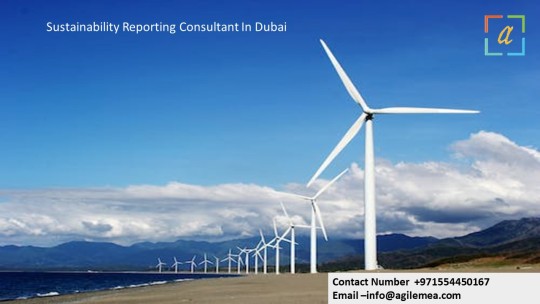
We are a Sustainability Reporting Consultant In UAE that the commercialization of all facets of life appears to be the central tenet of contemporary economics. The worst things in life—like relationships, experiences, creativity, and personal growth—have no monetary worth. We are trained to assume that something doesn't have actual value if it has no monetary (exchange) value. The contrary is more accurate in actuality. You cannot buy love, fulfilment, or happiness with money. Modern economies place an excessive amount of pressure and stress on both people and the environment.
Being a Sustainability Report Consultant In Dubai that human well-being depends on the environment because that is where all of our physical resources are sourced. The quantity of renewable resources that the planet can produce and that humans can use is known as biocapacity. However, we employ more than 1.5 times the earth's biocapacity each year and deplete its resources.
The only way to use more resources than are available is to degrade and harm the ecosystem by using natural resources. Therefore, due to human activity, the environment's capacity to produce the resources we will require in the future is continuously declining. Reducing our ecological footprint to live within the earth's biocapacity is the fundamental meaning of sustainability.
In our understanding as Sustainability Reporting Consultant In UAE that the main advantage of this is that the environment will flourish and perpetually support humans and all other forms of life. Living within the boundaries of the planet does not need deprivation; in fact, it has many advantages for individuals and society.
We are renowned Sustainability Reporting Consultant In Dubai which the advantages of living are significant. Additionally, sustainability frequently encourages healthy lifestyle choices, such as favouriting cycling or walking over driving. Fresh local cuisine is inspired rather than processed stuff. It promotes the use of safe, natural goods rather than artificial ones.
#Sustainabilityreportconsultantinuae#Sustainabilityreportingconsultantinuae#Sustainabilityreporingconsultantindubai
0 notes